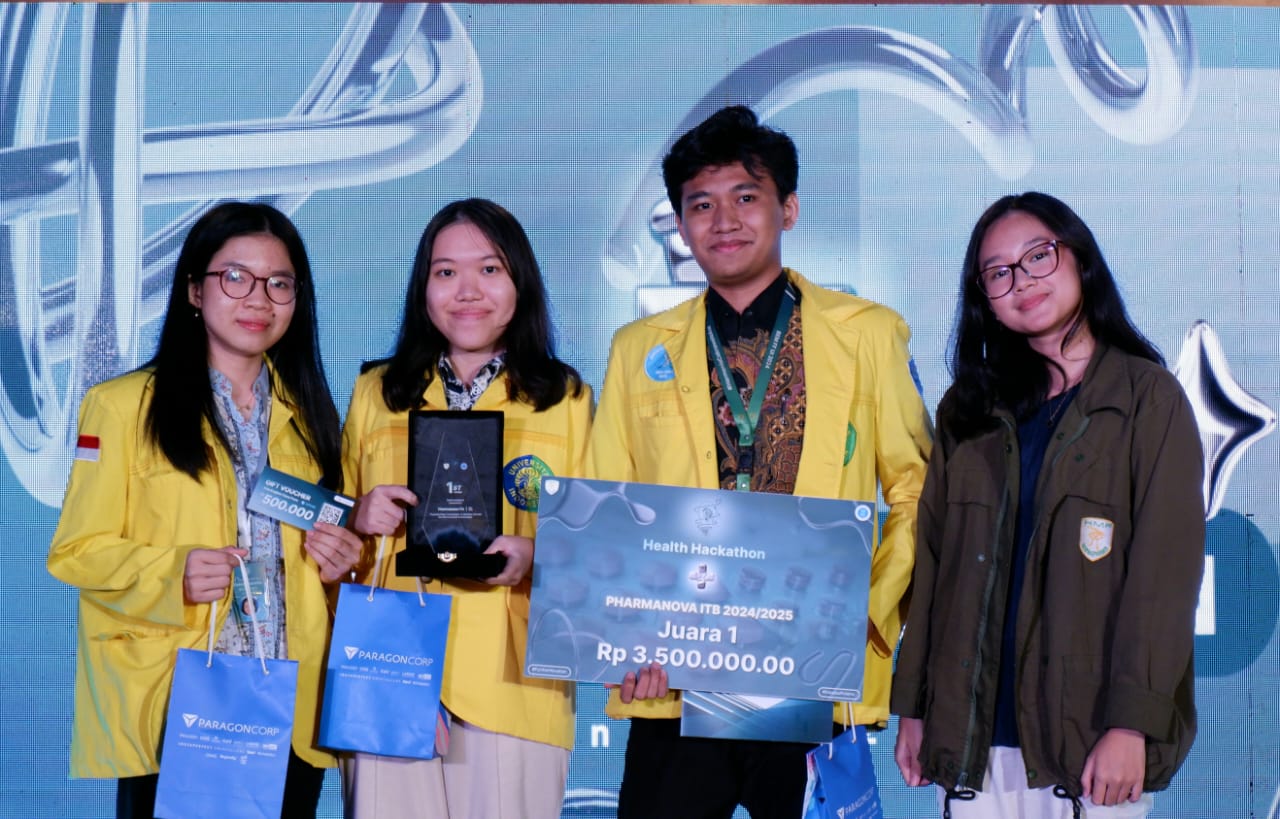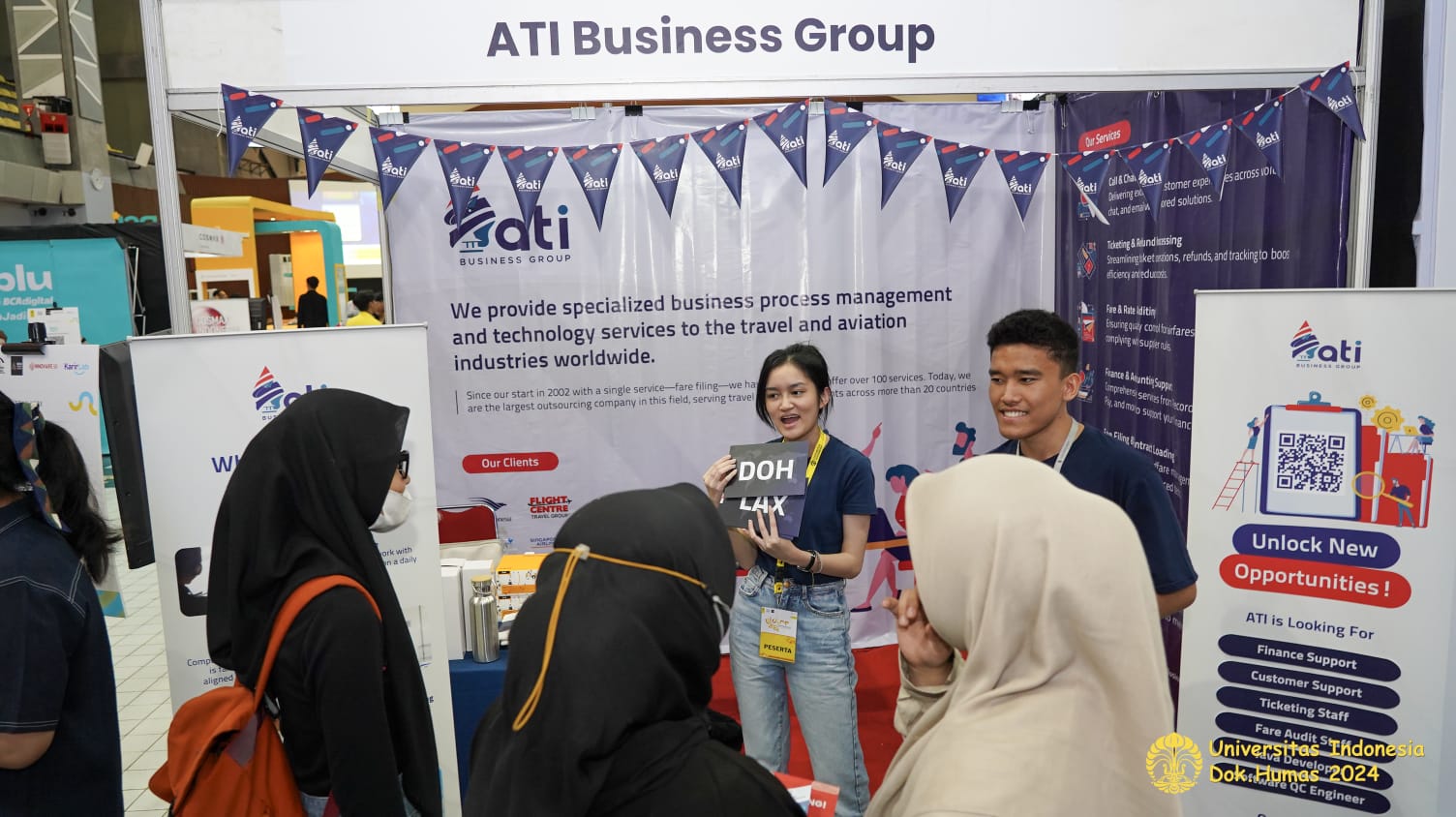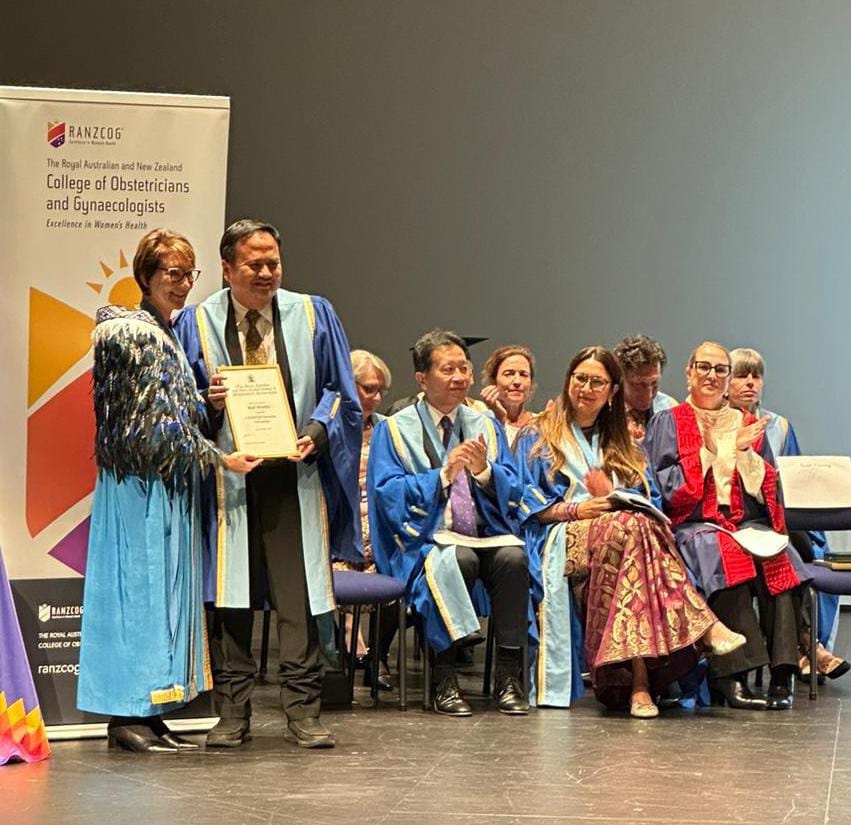Chancellor of the Universitas Indonesia Prof. Ari Kuncoro, S.E., M.A., Ph.D. authorized Prof. Dr. dr. Ratna Dwi Restuti, Sp.T.H.T.B.K.L, Subsp.Oto.(K), MPH as a professor in Otology, Faculty of Medicine UI. At her inauguration, Prof. Ratna delivered a scientific oration, “Cochlear Implantation: Opportunities for Congenitally Deaf Children to Become Superior”.
She reviewed the problem of congenital deafness in children and its impact on their quality of life. A meta-analysis conducted based on the Pediatric Quality of Life InventoryTM (PedsQL) assessment shows that children with deafness have a lower quality of life than normal children, especially in terms of social and school achievement, because they have limitations in accessing opportunities.
Congenital deafness is a hearing loss that a person experiences from birth. This disorder occurs before the baby/child learns to talk. Deafness can be caused by genetic (50%) or non-genetic and environmental factors. The incidence of congenital sensorineural deafness ranges from 0.5 to 4 per 1,000 births. If not treated optimally during the golden period, congenital deafness will impact the children’s ability to communicate, social-emotional development, and quality of life in the future. Therefore, appropriate management is needed to deal with this problem.
According to Prof. Ratna, early detection of newborn babies is essential, considering the high rate of congenital deafness in Indonesia. The Early Hearing Detection and Intervention (EHDI) procedure is carried out to detect and intervene early in babies aged 3–6 months with a high risk of congenital deafness. If a baby has one risk factor, the chance of experiencing deafness is 10.2 times greater, but if it has three risk factors, the possibility increases to 63 times greater.
Since 2002, the cochlear implantation program has been implemented in Indonesia to improve Indonesians’ ear and hearing health. This program is a solution for congenital sensorineural deaf children who cannot be treated with hearing aids. 1,899 children have received the benefits of cochlear implantation, 583 of whom are less than 3 years old, which is the golden period for cochlear implant placement. This surgery was carried out in 48 hospitals spread across the archipelago.
Cochlear implantation is a procedure of inserting electrodes into the patient’s cochlea. There are 3 stages that cochlear implant candidates go through. First, candidate selection which includes ear and hearing examinations, radiological examinations, and meetings with parents. A comprehensive evaluation was carried out using patient-centered and patient-safety principles. Second, the surgical stage, where the child undergoes general anesthesia and surgery to install cochlear implants on one/two sides of the ear and check the function of the implant. In the final stage, the tool will be activated and adjusted through a mapping procedure 2-3 weeks post-surgery. Patients undergo therapy regularly so they can hear and communicate well.
Prof. Ratna hopes that “Indonesia is Free to Hear” so that the birth of superior people can be realized. She said, “The development of the cochlear implantation program in Indonesia is still encountering many obstacles, especially the cost problem. Screening programs for early detection of congenitally deaf children and better treatment by utilizing technological advances also need to be improved. For congenitally deaf children, by undergoing cochlear implantation, it is hoped that they will be able to compete and develop like children who do not experience hearing loss,” he said.
Research regarding the problem of congenital deafness is one of many studies conducted previously. Some of them are Association Between Laryngopharyngeal Reflux and Obstructive Sleep Apnea in Adults (2022), Filtration Effectiveness on N95 Medical Mask Exposed to Repeated Ultraviolet Germicidal Irradiation Room (2022), and Pharyngeal Transit Time in Different Consistency of Food Using Fiberoptic Evaluation of Swallowing ( 2022).
Before being authorized as a professor, Prof. Ratna completed her General Practitioner education (1988), ENT Specialist Program (1998), and Doctorate in the Medical Sciences Study Program (2006) at UI. She was a Fellow of the Otology Program at Sir Charles Gairdner Hospital, Western University Perth, in 2002, a Consultant THTBKL Specialist Doctor in 2009, and a Master of Public Health at Gadjah Mada University in 2016. She is on the Advisory Board of the Central Board of the Association of Indonesian Ear Nose and Throat Specialist Doctors in Head and Neck Surgery and Chair of the Medicine UI–RSCM Health Research Ethics Committee.



